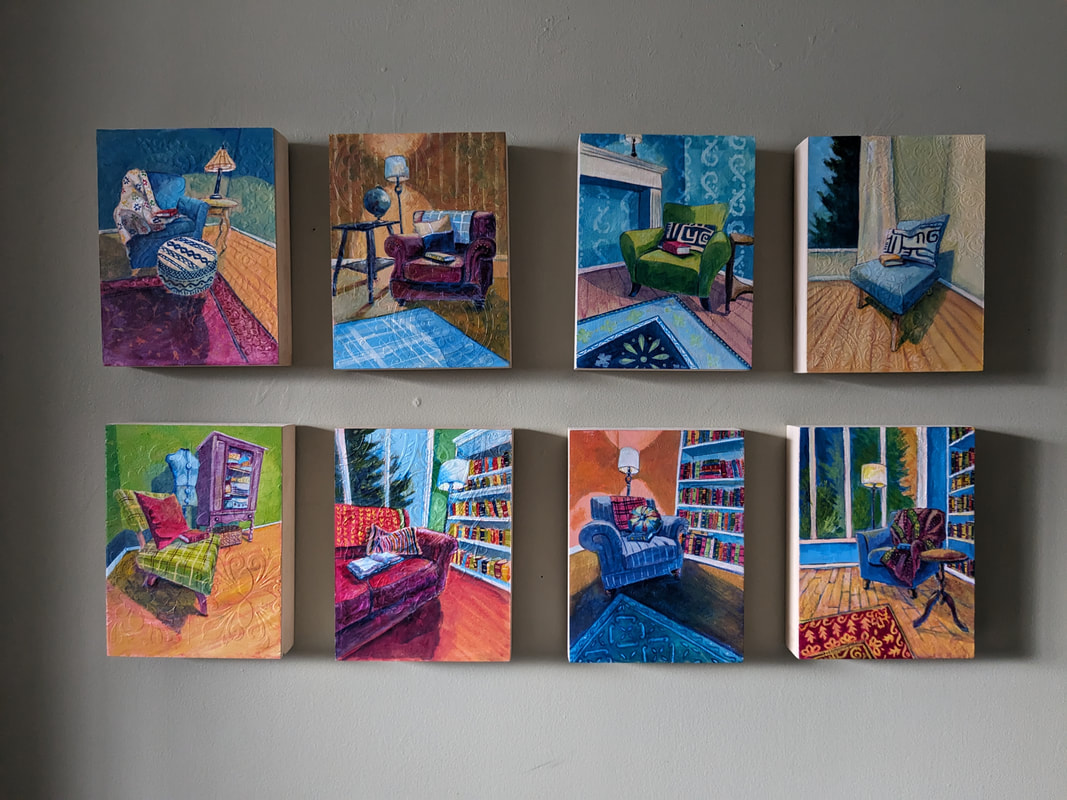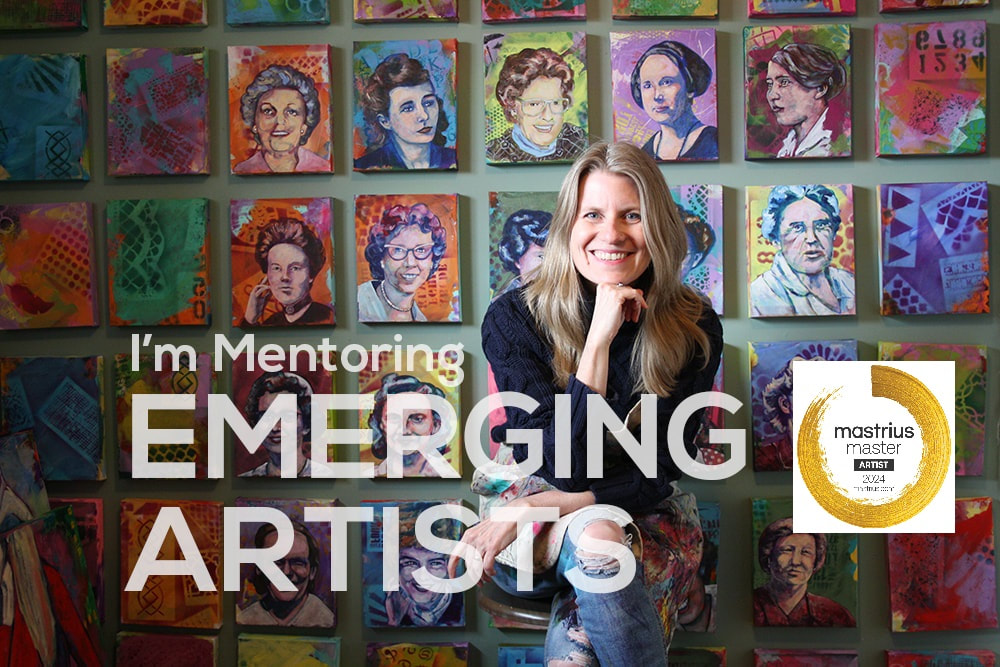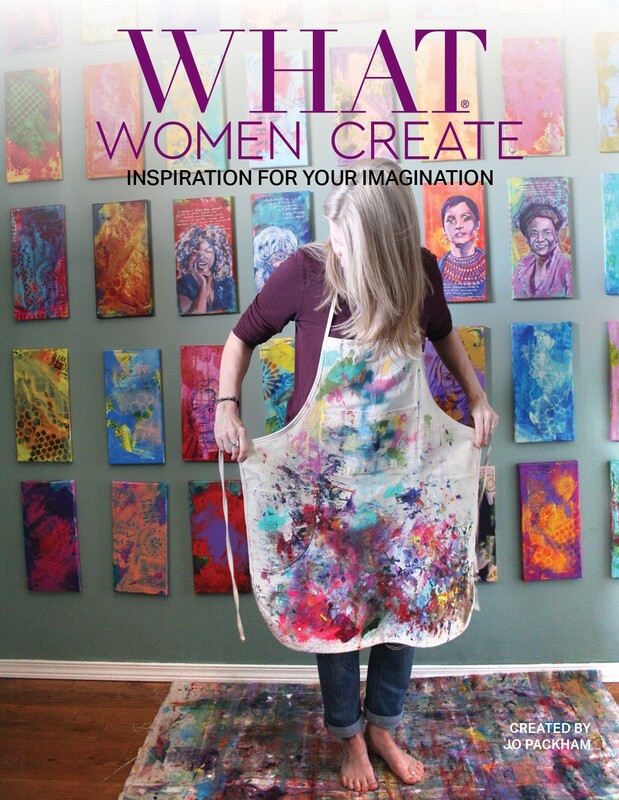|
As a voracious reader, ‘A Room of One’s Own’ by Virginia Woolf is an essay that I return to often and during the pandemic, the value of a space to call my own became even more important. In the early days of my career as a young mother, I focused on large paintings of simplified interiors, but with recurring health issues my work has slowly reduced in size, while texture and pattern have become a greater focus. The pieces incorporate lace texture as a nod to an earlier time, while still featuring the books and stories that imbue most of my work. The themes of sanctuary and stillness continue to prevail.
“I n her essay, Woolf uses metaphors to explore social injustices and comments on women's lack of free expression. Her metaphor of a fish explains her most essential point, "A woman must have money and a room of her own if she is to write fiction".[2] She writes of a woman whose thought had "let its line down into the stream".[4] As the woman starts to think of an idea, a guard enforces a rule whereby women are not allowed to walk on the grass. Abiding by the rule, the woman loses her idea. Here, Woolf describes the influence of women's social expectations as mere domestic child bearers, ignorant and chaste. The political meaning of the text is directly linked to this metaphor. When the emergence of the 'new woman' occurred, this awareness of injustice made a clear political statement regarding women's intellectual potential in their own right. Therefore, the broader literary influence of this argument reveals the increase in social tension as the century's shift looms. Woolf suggests that the absence of female fiction is a result of a lack of opportunity rather than a distinct absence of talent. The association between poverty and low achievement can also lead to disadvantages for generations. As women have been for decades marginalized and the patriarchy dominated literature, Woolf's general theory can be extended to many political circumstances. In this case, children are extremely conscious of their social status and thus aware of their own possibilities or absence, similar to the 'fish' metaphor in which women were aware of their position and lost their 'thinking'. It helps us to see how social problems shift shape, but the absence of opportunity still causes isolation and inequality.” Comments are closed.
|
|




